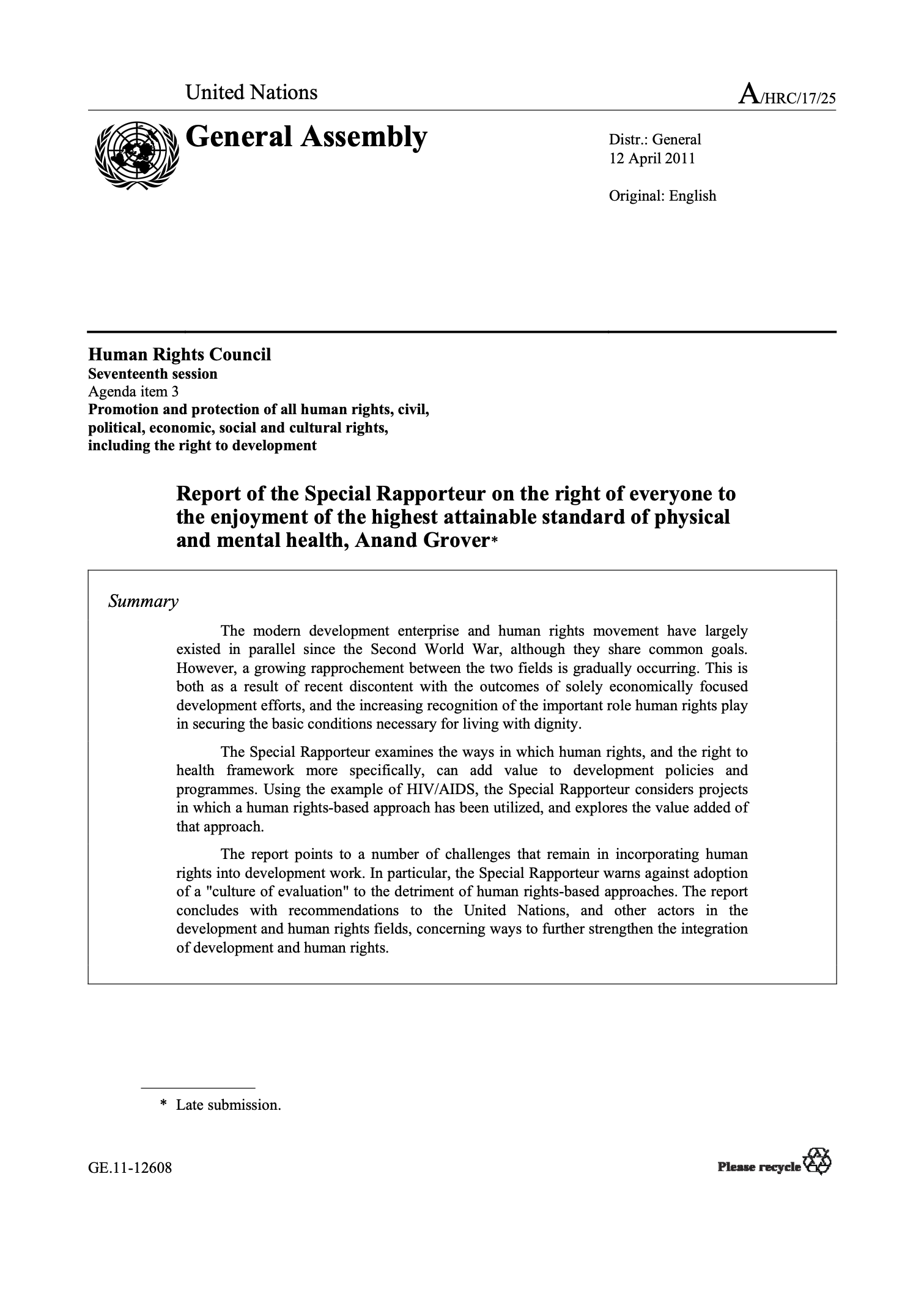2011 Report of the Special Rapporteur on the right to health
Analysis of precedential value
The special rapporteur on the right of everyone to the enjoyment of the highest attainable standard of physical and mental health is a human rights expert mandated to report and advise on this human right. This mandate was created by the Commission on Human Rights in April 2002 and has been periodically renewed since. This report constitutes an authoritative source of expert precedent for the meaning and significance of key language. The incumbent at the time of this report’s release was Anand Grover (India).
To create this report, Mr. Grover contacted 29 Member States and received input from 19 of them. Its addendum states: “the present report contains, on a country-by-country basis, summaries of communications sent by the Special Rapporteur to States, responses received from States, observations of the Special Rapporteur, and follow-up communications and activities relating to earlier communications, from the period of 16 March 2010 to 15 March 2011 and replies received for the period of 2 May 2010 to 1 May 2011.”
Used as precedent
key population and community leadership
“The Special Rapporteur recommends that states take measures to ensure that information on the right to health framework, including the need for transparency, accountability and participation of individuals and communities in decision-making that has a bearing on their health, is disseminated and its use promoted in development-related areas.” (paragraph 60(b))
human rights
“The Special Rapporteur recommends that efforts be made to improve tools to measure the impact of human rights-based approaches to development interventions with the support of relevant international bodies such as UNDP and OHCHR, taking into account that to achieve realization of rights is an end in itself.” (paragraph 60(f))
“The Special Rapporteur recommends that measures be taken to ensure that human rights priorities and goals are not neglected as a consequence of an overreliance on easily quantifiable data in the evaluation of development interventions.” (paragraph 60(g))
